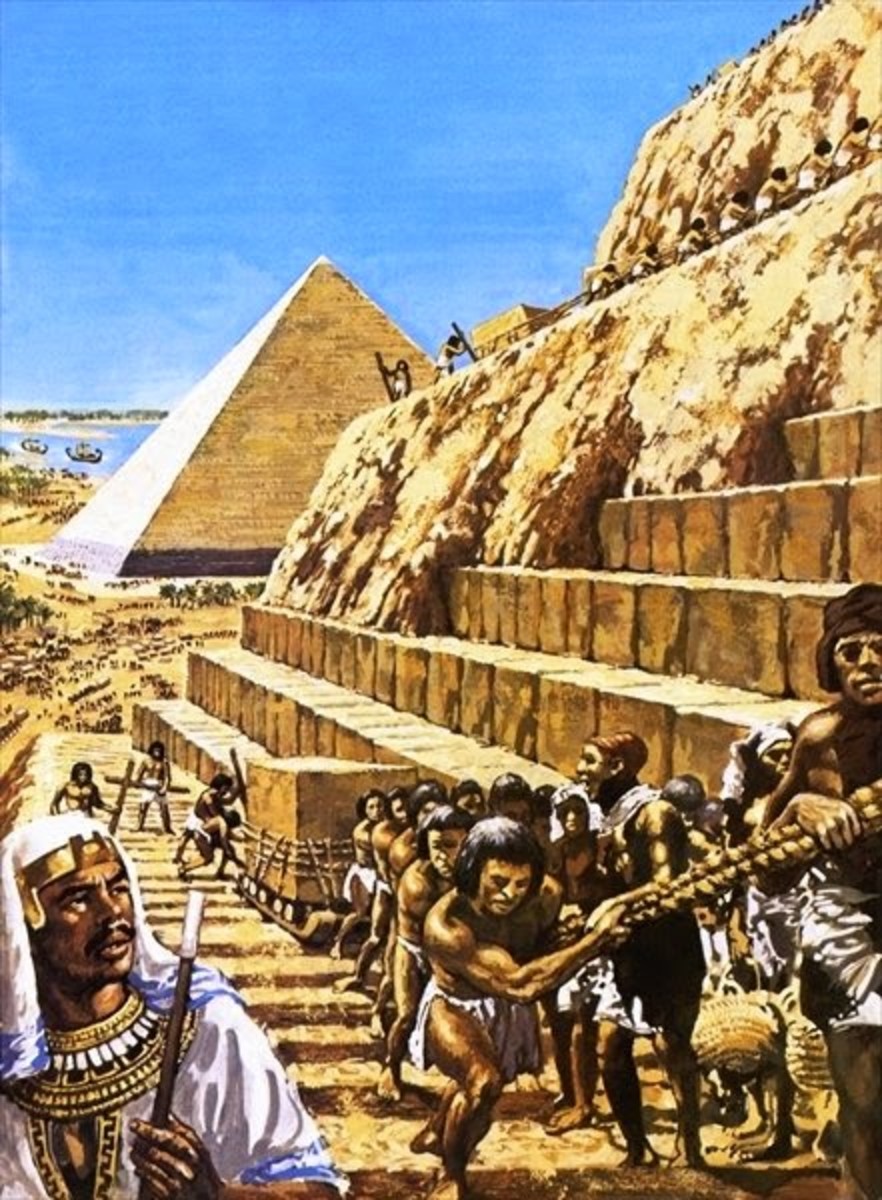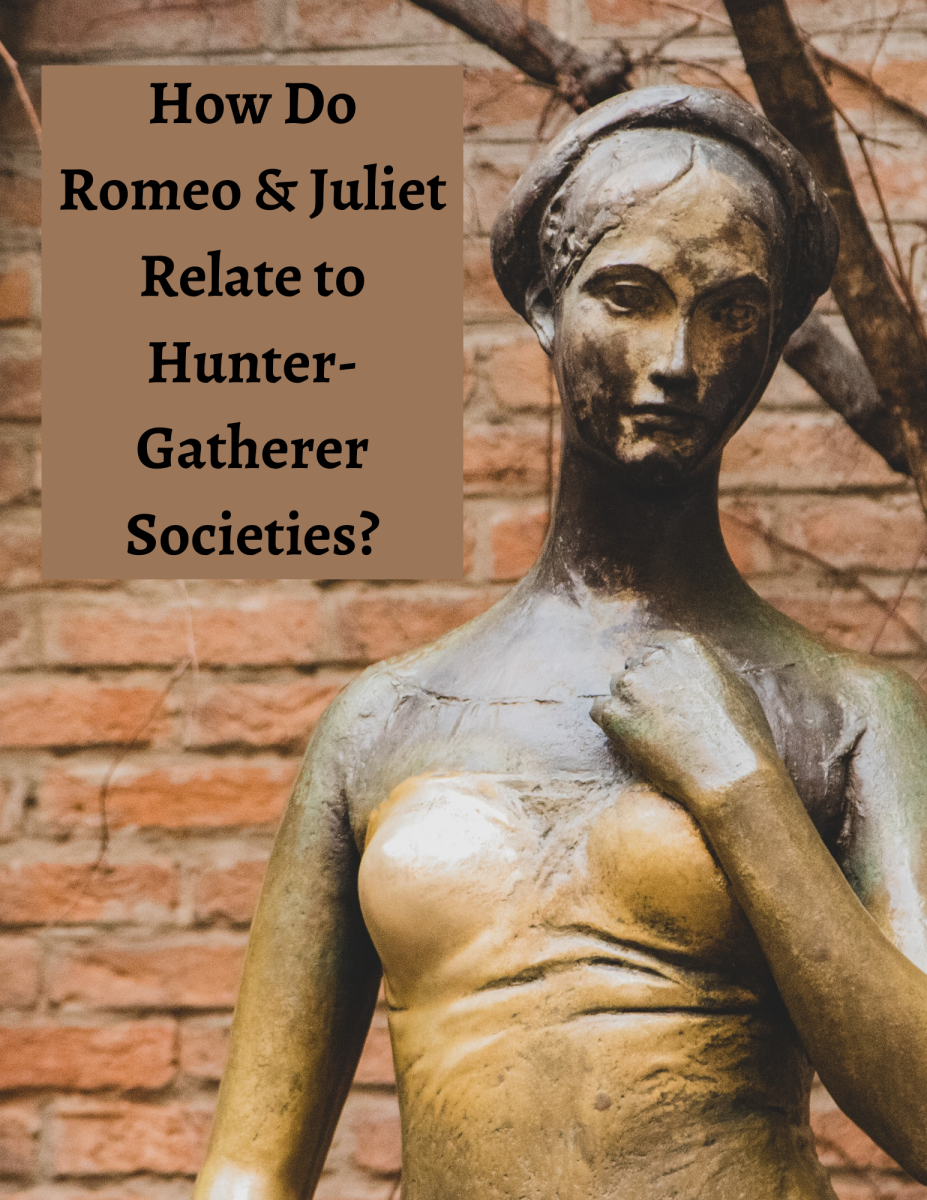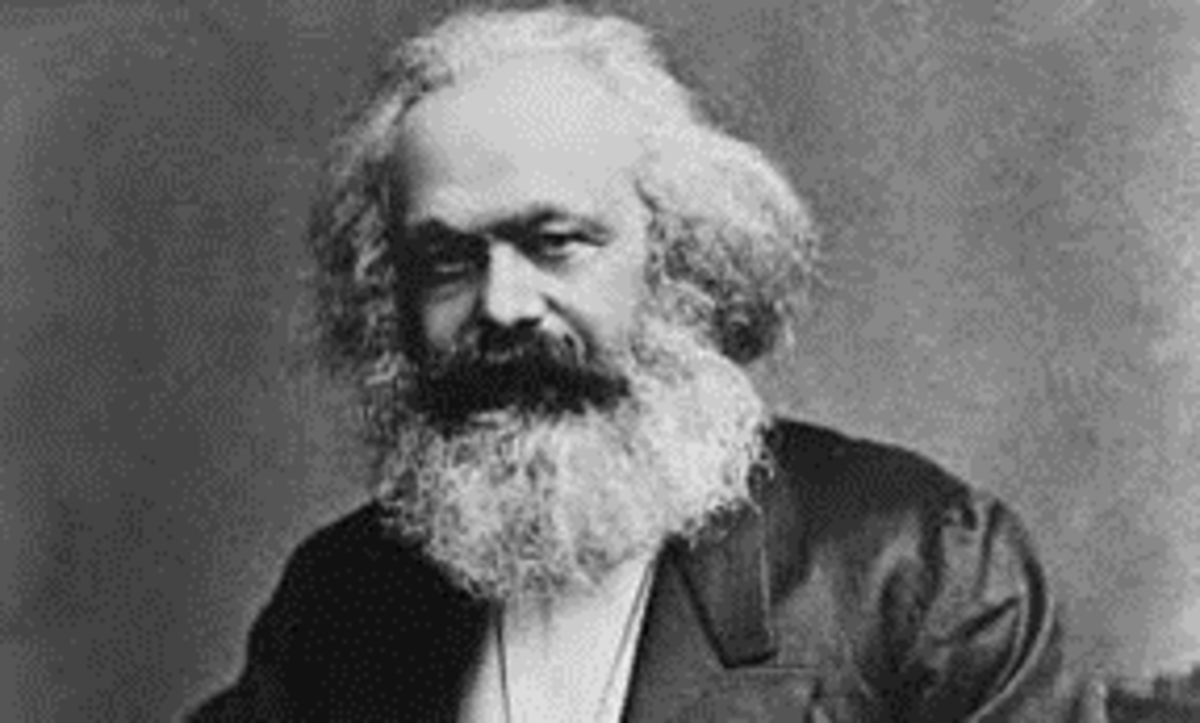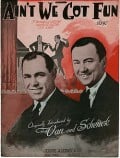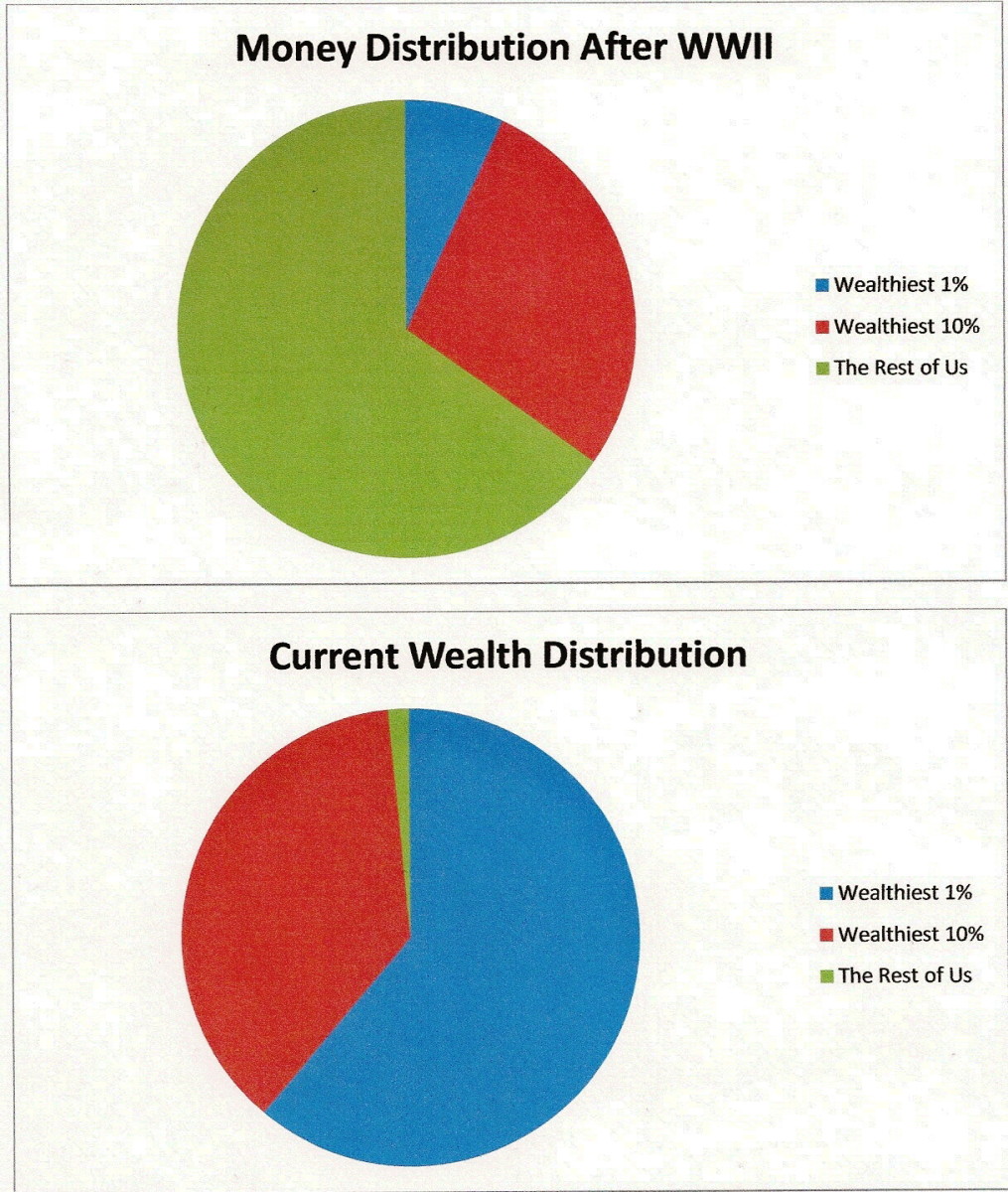Karl Marx and his Theory of Alienation
Many complain about alienation but can't quite put their finger on it.
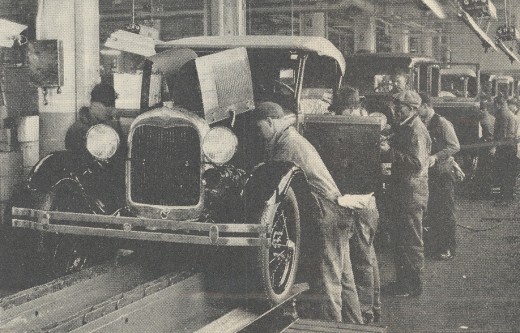
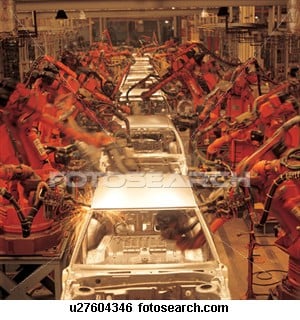
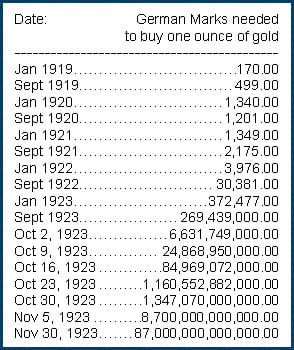

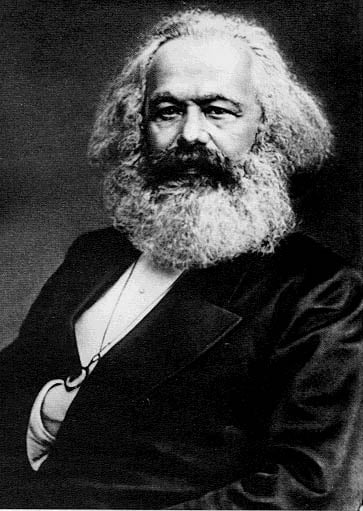
The Theory of Alienation and How it Applies to Modern Society
The reality of alienation in the modern world is prevalent and can be seen everywhere. Alienation simply stated means separation from that which is desired or desirable. It floods the news channels and is seen in day to day life in our interactions with others. But Karl Marx's slant on the idea comes from his understanding in the context of capitalist modes of production for profit. It is this focus that allows us to see the source of alienation in its true context in society and how all other forms of alienation are rooted in this prime cause.
Marx identified the process of people finding useful things in nature and then taking them as they were freely available and changing these resources to something of greater use value by working on them to improve their usefulness. An example that Marx used frequently, is the taking of raw resources like cotton, wool and hemp and turning them into woven cloth. This was then taken and worked on to produce clothing. Other examples are mining for raw ore and then turning this into cutlery, ships, cars and railroads. Wood was cut from trees, converted into chips and lumber to make paper and houses. Plant seeds were sown and mature plants harvested for food and animals kept and raised for the same purpose. Some animals were trained to help in the production process. As long as people were in direct contact with nature and created all that was useful directly there from, there was no alienation. Everyone knew exactly where all that was necessary and useful for life came from. They had to work well with each other in order to survive. There was as a result, an awe and respect for nature and one another that dominated their stories and even their architecture. Alienation has as its roots, the production of surplus value that was over and above basic and immediate need. Surplus value meant wealth and it became a commodity when some realized that it could be used as exchange for something there was a shortage of. As surplus value allowed for the emergence of specialization, succeeding generations lost touch with the way things were done on the solid basis of material nature. Specialization in one direction means that other knowledge and ways of doing things are forgotten over successive generations and the specialist must depend on those who are still in contact with that reality to support them. But they must offer something in value in exchange. No one likes to work for someone else who contributes nothing; there must be some sort of fair exchange as we all have the same basic needs to live.
The production of surplus value meant that some people could now be freed up for other activities, such as defence against marauders, developing of the sciences such as sky watching-astrology-astronomy, alchemy, and the forerunner of modern chemistry, invention, engineering and all other activities that eventually wound up in the contemporary, complex industrial societies in the modern world. These co-exist with societies that are not as developed. The world's societies exist in a condition of combined and unequal development. This leads to alienation between cultures and the possibility exists for the unfolding of permanent revolution in less developed regions and societies. The evolution of society away from subsistence living meant that changes in the structure of society was inevitable. Marx was aware of this and described it in great detail. He was also aware of how the toiler became alienated from nature and the very thing he now works to produce. This has a lot to do with how the idea of money evolved to act as a medium of exchange in the form of what he called a universal commodity. The existence of a universal commodity meant the end of strict barter trading and made trade more fluid and dynamic. Barter was often cumbersome and inconvenient, so various items became the medium of the universal commodity. These were items like wampum beads, gold, precious and semi-precious stones, cattle, art objects and the like. As most of these had no real use value in of themselves, they became a tool-medium of exchange to obtain the desired real values that were necessary for life. This is how barter evolved in a qualitative leap. At the same time, one form of alienation crept in as the producer of value was not necessarily the one who consumed or used it.
Another aspect of the theory of alienation is the separation of the means of production from the ones who produce. This entailed a number of steps that ended in the contemporary world. The principle idea behind this is the acquisition of the means of production by an owner class, such as the aristocracy, a theocracy or the contemporary bourgeois industrialist and bankers. In nature there is no such thing as ownership. If anything is true, nature owns us and not we own nature. Somewhere in history and for some causative reason, some societies decided to act as marauders to other societies and appropriate what they had produced for themselves. Thus a question of ownership developed. The foundation idea is that whatever a person works to create becomes their property. They can then trade with others, or worse, have it taken by theft through force. With the development of states in ancient times, wars of conquest were fought for the means of production, whether land, fishing areas, mines, trees, slaves and so on. The concept of money existed alongside of this and became a focus of attention. As people were for one reason or another, removed from access to the means of production, they became alienated. This alienation continued through history to the present. Alienation became a real problem with the removal of the peasants from the land within the multitude of kingdoms and principalities then existent in the world. Land was expropriated for the purpose of growing cash crops for the landlords, prince, kings and the courts. This burgeoning business of cash crops was assisted by money, managed by emerging banks. Banks made loans with the idea that they would be paid back with interest and/or a service fee for the use of the money to assist in manufacturing expansion.
The landless peasants wound up in growing cities, where trade was done and manufacturing was concentrated and developing. Now lacking everything except their ability to labor, they were forced to work in order to survive and they worked for money, the universal commodity that increasingly became a fetish of adoration due to its seeming magical power to convert into anything else of use. Money of itself cannot be eaten of worn, nor can it keep you sheltered on its own. For the most part, what was produced in the manufacturing centers was a single commodity and the typical landless labourer became alienated from what they produced. As they did not own the means of production as given under royal or banker’s entitlement by defined laws, this also served to sever relations between the labourer and what was produced creating deeper alienation. It also severed direct relations between the owner of the means of production from the producer using those means but having no say in their use. Often they could not afford what they produced from the wages they received. Various developments in production beginning with the industrial revolution, assisted by the banks, allowed things like mechanically enhanced production and the assembly line. These developments constantly challenged those who laboured and there have been hundreds of years of cycles between nearly full employment, engineering changes, over-production, economic collapses, unemployment, re-education, employment and more changes and so on in complex repeated cycles. Each round creates further alienation.
Laborers have been encouraged to accept script money as wages and as script money is subject to devaluation and inflation, it becomes what is known as fictitious value, where the real value part decreases and the fictitious part increases over time. Initially script was backed by gold, but this "limitation" was removed. A classic example of expanding fictitious value is the collapse of the Reich mark in pre WWII Germany, where inflation was so intense that everyone had to have wheel barrows full of rapidly devaluing script money to buy a single loaf of bread. It was so bad toward the end that labor had to be paid every hour and then run out to spend it before it lost even more value. Thus most of what they had was fictitious value as a billion fold more was required to by the same items that cost a tiny fraction of the amount a year earlier. This is one of the realities, triggered both by the Versailles Treaty and depression that assisted Hitler into power. This devaluation was triggered by war reparation payments for war damages to Europe from WWI under the Versailles treaty.
We live in a culture of consumerism where things like planned obsolescence, boring, dirty, dangerous and underpaid work is the norm on a world scale. Our focus has been turned almost totally to the acquisition of money and this no longer backed by traditional value fetishes like gold. We live isolated from and alienated from nature. If we took away the mega-cities, the massive production facilities, our power, transportation, people for the most part would not know how to handle the new environment, which would be what's left of a ruined nature. Pol Pot did something like this with disastrous consequences for his people. He removed the whole population forcibly from the cities for his agrarian reform. People who have been trained virtually from the cradle to function in an industrial mega-city have little or no knowledge of agriculture, nature and skills to deal with these new realities. When the specific job one does disappears, such as going on now in the current cycle of economic collapse, the person who is thus alienated from the now gone job has to retrain or relearn the old ways.
Alienation also exists in the form that many of us have highly specialized functions on the assembly line and none can do the full job. To make a car requires a host of skills that no person is capable of learning them all in a single lifetime. Further, the amount of collected skills in each finished commodity prices it out of the immediate reach of most labourers. They then turn to the banks who exploit this with loans and credit for houses and cars, charged at interest. When the job is lost, the bank, that holds the legal title, claims the house or car and keeps all the payments made to that point. This forms one of the most prevalent forms of alienation of labor from what they make in modern society. What we see now is lots filled with the over-production of mega-factories that no one can afford to buy due to unemployment. Homes are lost to foreclosure and labourers who struggled so hard to gain title lose the house and all payments to the mortgage held by the bank and end up homeless. The bank then holds the empty houses that bring in no income and become “toxic assets”. Governments have to intervene to prevent further disaster, which often is not successful. Whole insurance companies and banks have collapsed due to this. This is modern alienation on a mass scale.
Banks and governments have another trick and that is to nationalize. The government takes ownership until times are good enough again to allow privatization. This cycle goes back and forth in lockstep to the health of the economy. In each round, the weaker businesses are destroyed and the assets are taken over by the survivors. The alienated laborer is left with the struggle for money, continual re-training, consumerism and the distractions aplenty of the modern world. Alienation from nature, the means of production, the product that is manufactured, from employment and by the atomization of the work force by skill and shift work defines the modern state of alienation.
Acknowledgement
This work is co-written by myself and W. F, Raymond, who provided the inspiration for this series.
Marx on alienation
Class war is real and ongoing
- Class War - Revolutionary Liberation Gospel
The history of all hitherto existing society is the history of class struggles Thus wrote Karl Marx and Frederick Engels in the preamble to the Communist M
Noam Chomsky on Class War
Don't Pay the Capitalist Bankers Interest on Debt!
- Call to Action! Don\'t Pay the Capitalist Bankers Interest on Debt! - Revolutionary Liberation Gospe
Supreme Interest Gouging the Poor Capitalist bankers fly in the face of all that is humane and just. They attempt to make themselves rich by drawing wealth o
Marxism in literature and video


